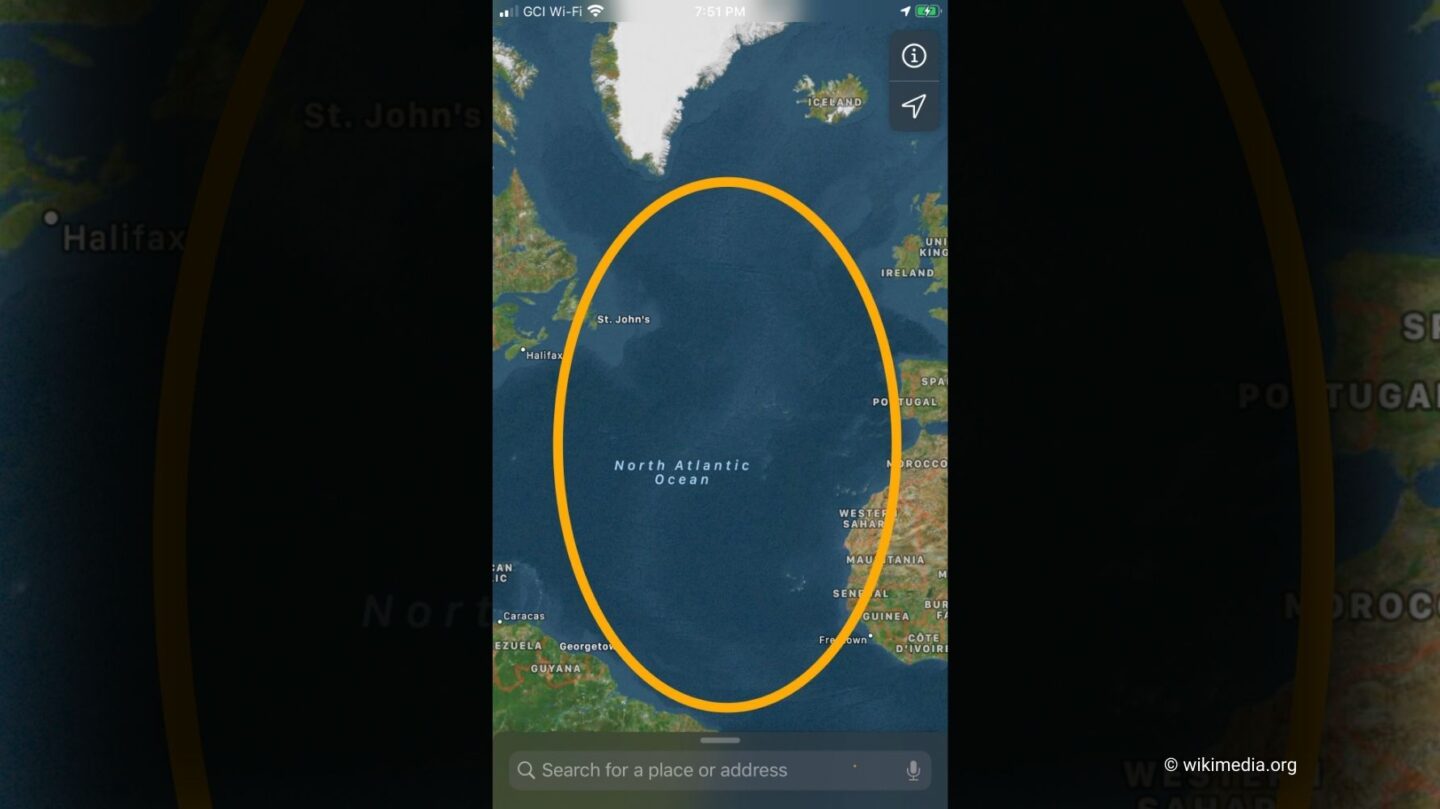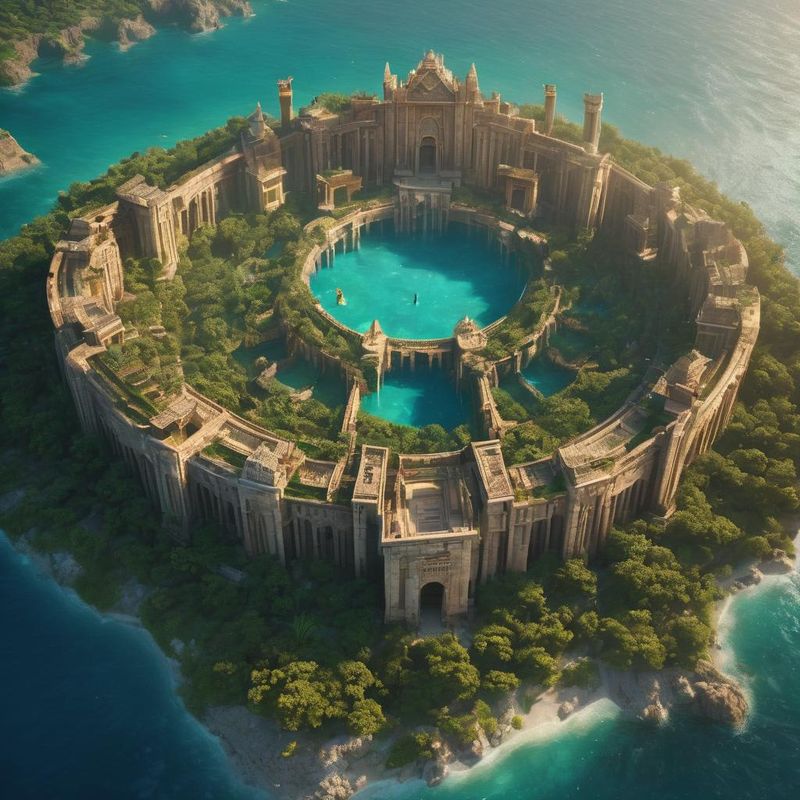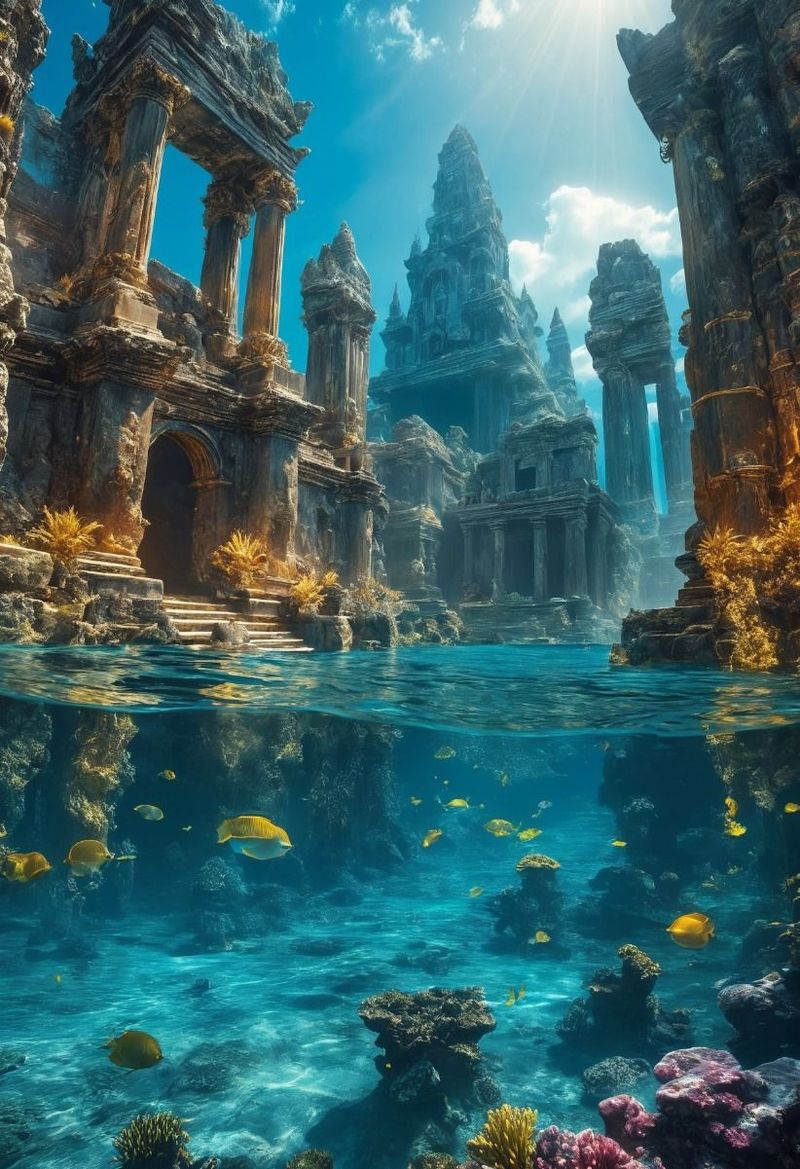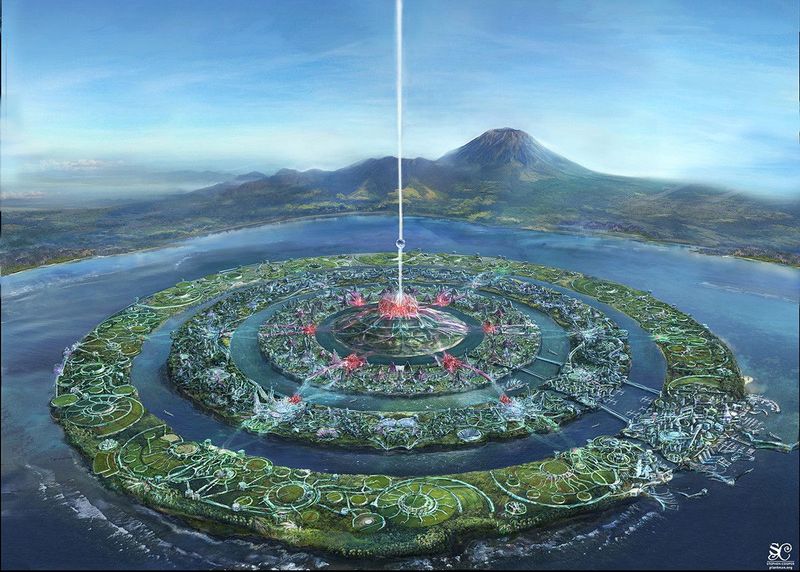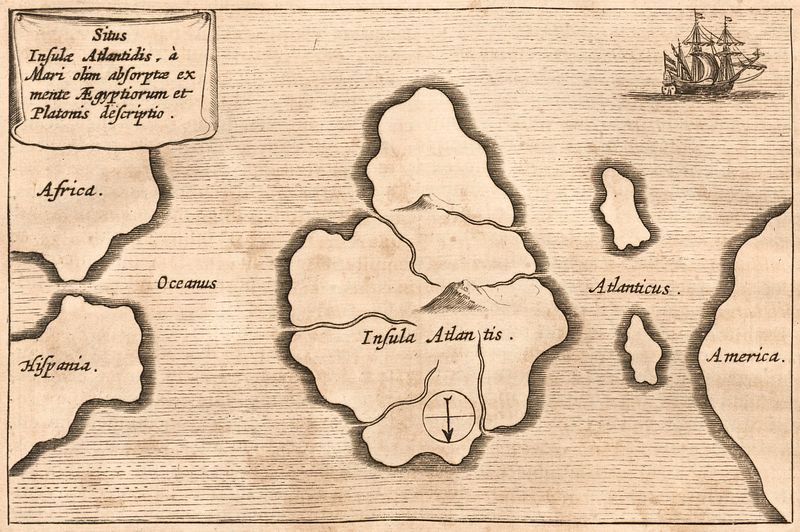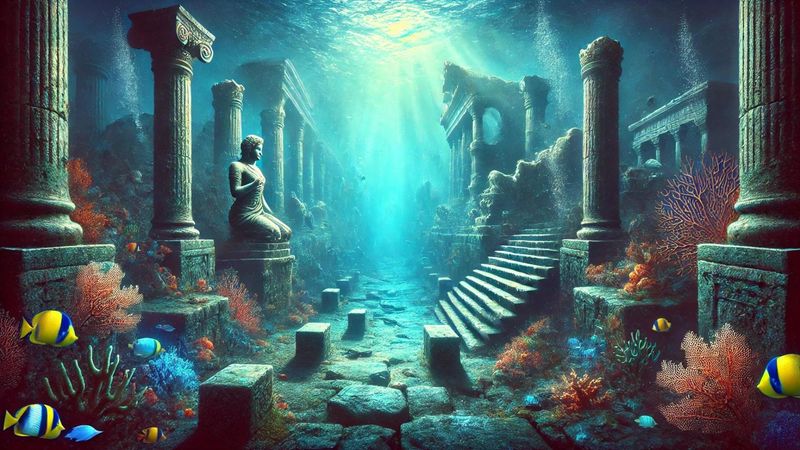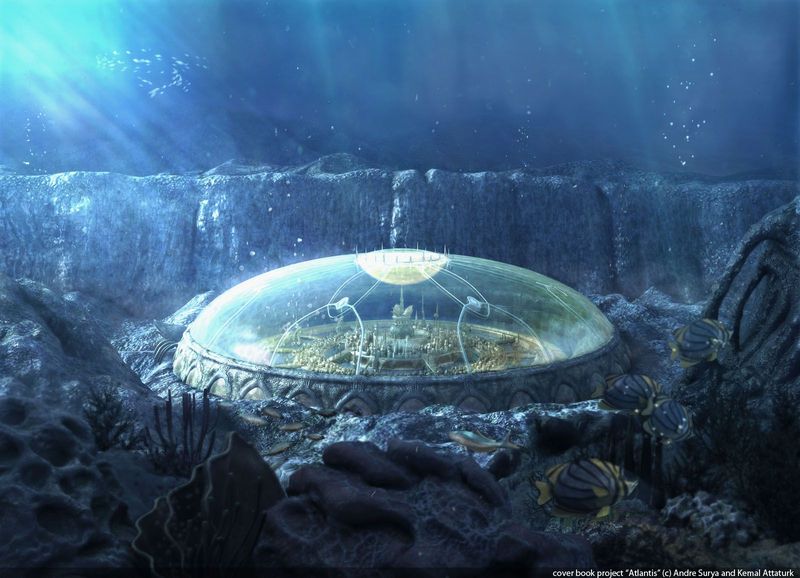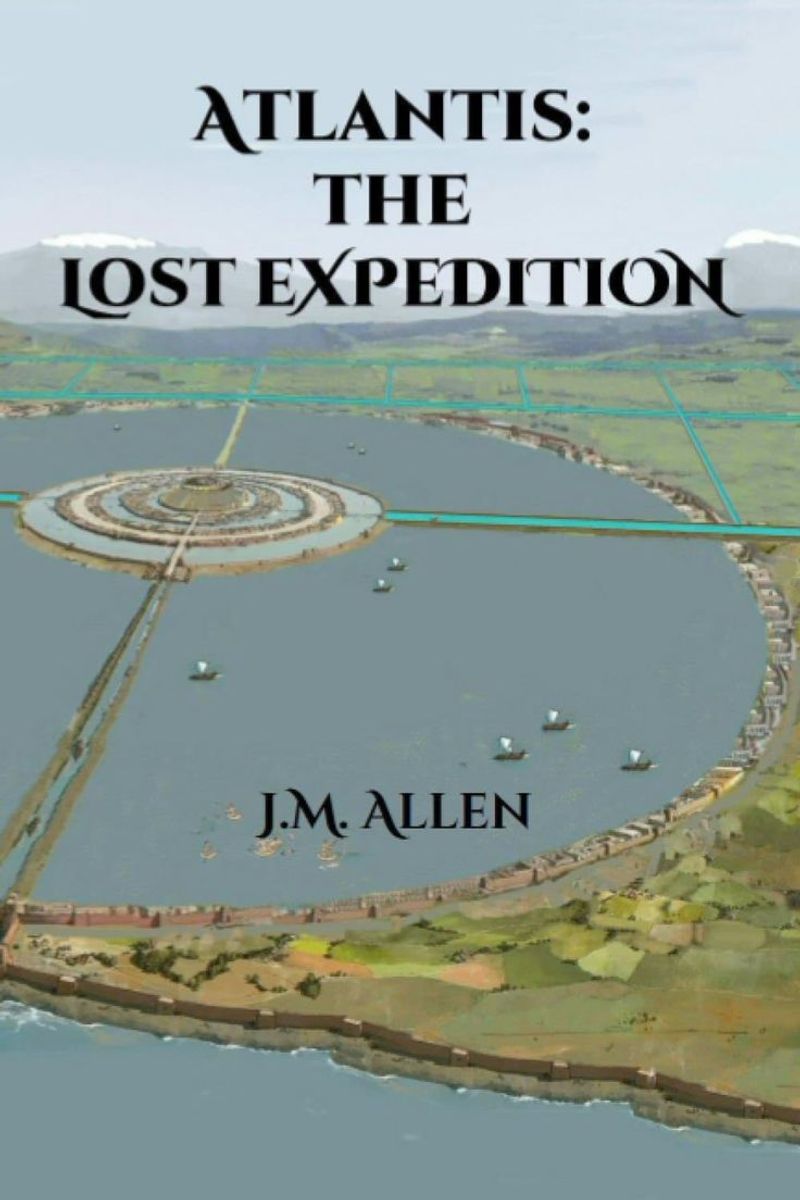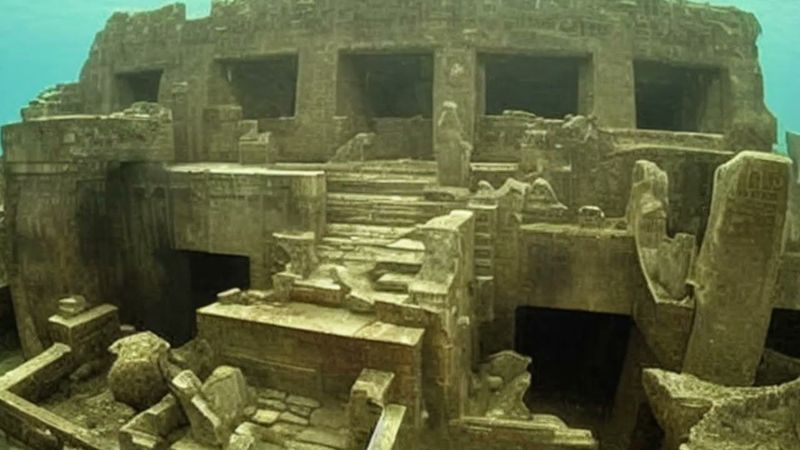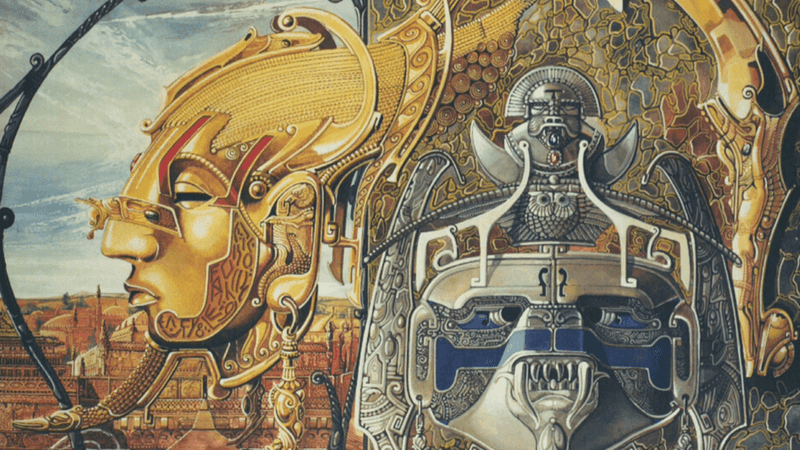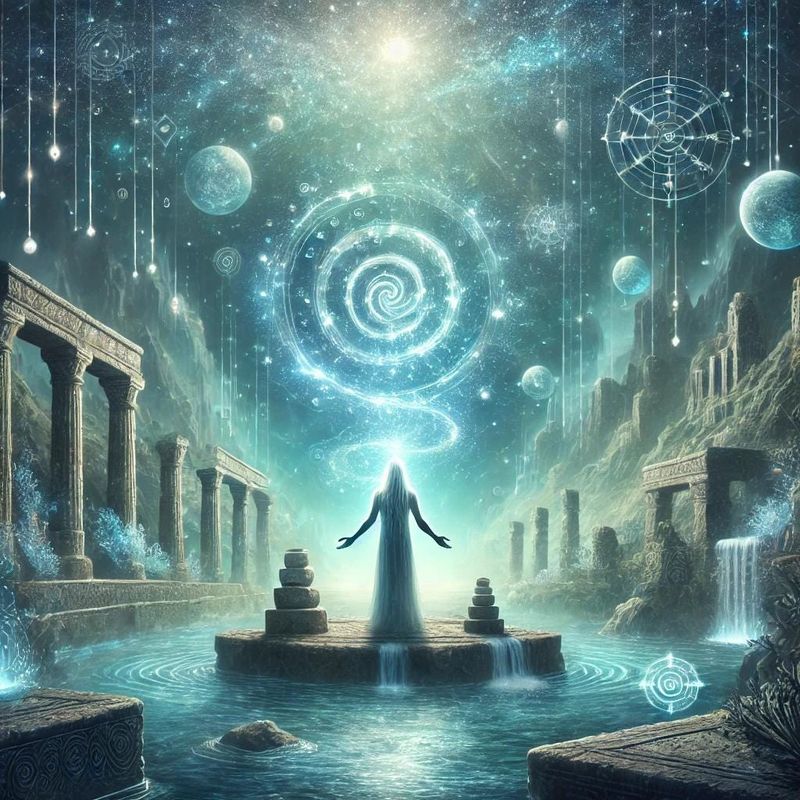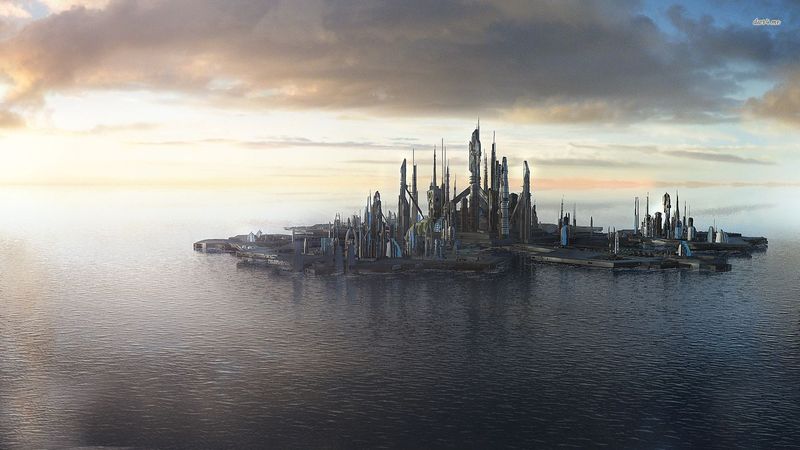The Lost City of Atlantis has fascinated historians, archaeologists, and storytellers for centuries. This mythical island, first described by the ancient philosopher Plato, is said to have sunk into the ocean in a single day and night of misfortune. In this blog post, we explore 14 incredible facts about Atlantis that span history, mythology, and the intriguing theories surrounding its existence.
Plato’s Account
Plato, the ancient Greek philosopher, wrote about Atlantis around 360 BC. He described it as a powerful and advanced civilization located beyond the “Pillars of Hercules,” commonly believed to be the Strait of Gibraltar. In his dialogues “Timaeus” and “Critias,” Plato detailed a society of immense wealth and technological prowess, which eventually succumbed to moral decay and divine retribution. Atlantis’s story is often regarded as allegory, reflecting his philosophical ideas. Despite debates over its literal existence, Plato’s narrative remains a cornerstone of Atlantis lore, captivating the imaginations of countless adventurers and scholars.
Geological Theories
Various geological theories attempt to explain the possible location and destruction of Atlantis. Some suggest it was a real island that sank due to catastrophic earthquakes and floods. Theories propose locations ranging from the Mediterranean to the Caribbean. The concept of shifting tectonic plates adds intrigue to these hypotheses. The search for Atlantis has fueled numerous underwater explorations, seeking tangible evidence. Though none have definitively proven its existence, these geological perspectives contribute to the ongoing allure and mystery surrounding the fabled lost city, encouraging exploration and scientific curiosity.
Atlantis in Popular Culture
Atlantis has been a prevalent theme in popular culture, inspiring countless films, books, and television shows. From Disney’s animated feature “Atlantis: The Lost Empire” to sci-fi series exploring underwater worlds, the legend of this sunken city captivates audiences worldwide. These portrayals often blend historical and fictional elements, offering imaginative interpretations. Atlantis serves as a symbol of lost knowledge and uncharted worlds, enticing creators and viewers alike. Its cultural impact underscores humanity’s fascination with ancient mysteries and the eternal quest for discovery and understanding.
Lost City of Z
The quest for Atlantis has parallels with the search for other legendary cities, like the Lost City of Z. Explorers such as Percy Fawcett ventured into the Amazon rainforest, driven by stories of a mythical civilization. Though their expeditions often ended in mystery or tragedy, they fueled public imagination. Despite lacking concrete evidence, these quests highlight humanity’s enduring fascination with uncovering hidden truths. The allure of lost cities like Atlantis and Z serves as a metaphor for exploration itself, challenging us to seek the unknown and push the boundaries of knowledge.
Atlantis and Science
Modern science has approached the Atlantis legend with skepticism and curiosity. Researchers analyze historical texts, geological data, and underwater findings to explore its possibilities. While many view Atlantis as myth, some hypotheses involve real historical events or locations, like the Minoan eruption on Santorini. Advances in technology enhance these investigations, offering new insights and rekindling interest. Science’s pursuit of Atlantis exemplifies the intersection of myth and empirical inquiry, illustrating how ancient narratives can inspire contemporary research and deepen our understanding of past civilizations.
Symbolism of Atlantis
Atlantis’s narrative is rich in symbolic meaning, often interpreted as a cautionary tale. It embodies themes of hubris, moral decline, and the consequences of technological advancement without ethical consideration. Plato’s story of Atlantis serves as a mirror, reflecting societal issues and philosophical ideas. The city’s destruction is seen as a warning against overreaching ambition and the loss of moral compass. This allegorical dimension adds depth to the legend, making it relevant across cultures and eras, and inviting reflection on contemporary challenges and human nature.
Atlantis as Utopia
Some interpretations view Atlantis as a utopian society, characterized by advanced technology, social harmony, and philosophical wisdom. This vision of a perfect civilization resonates with ideals of progress and enlightenment. Atlantis’s supposed achievements in engineering, governance, and culture make it an aspirational model for many. The utopian aspect of Atlantis fuels debates on the balance between technological progress and ethical values. It serves as a beacon for envisioning future possibilities, encouraging innovation while reminding us of the importance of maintaining a moral and harmonious society.
Atlantis and Lost Technologies
Legends suggest that Atlantis possessed advanced technologies far beyond its time. Descriptions of energy sources, machinery, and architectural marvels intrigue historians and futurists alike. These tales of lost technologies inspire speculation about human potential and the rediscovery of forgotten knowledge. The idea of an advanced civilization meeting its downfall also serves as a lesson in the responsible use of technology. Atlantis’s alleged innovations continue to fascinate, prompting discussions on technological progress, sustainability, and the balance between innovation and ethical responsibility.
Historical Candidates for Atlantis
Numerous locations have been proposed as the possible site of Atlantis. From the Mediterranean islands to the Caribbean and even Antarctica, each theory presents unique evidence. Some scholars point to the Minoan civilization on Santorini, devastated by a volcanic eruption, as a historical parallel. These candidates intrigue archaeologists, sparking debates and expeditions. While no definitive proof exists, the search for Atlantis encourages exploration of our planet’s history and mysteries. The diverse theories reflect the complex interplay of myth, history, and imagination in our quest to uncover ancient truths.
Atlantis in Literature
Atlantis has inspired a vast array of literature, from ancient texts to contemporary novels. Writers like Sir Thomas More and Jules Verne explored its themes in works such as “Utopia” and “20,000 Leagues Under the Sea.” These stories often blend fact and fiction, offering new interpretations and insights. Literature on Atlantis captivates readers by exploring human nature, adventure, and the unknown. It serves as a canvas for authors to project ideals, fears, and questions about civilization, encouraging readers to ponder the mysteries of our past and potential futures.
Atlantis in Archaeology
The search for Atlantis has inspired numerous archaeological endeavors, both underwater and on land. Explorations seek tangible evidence of the lost city, though definitive proof remains elusive. Discoveries of submerged ruins and ancient artifacts fuel speculation and excitement. These archaeological pursuits contribute to our understanding of ancient civilizations and their potential connections to Atlantis. The thrill of discovery and the hope of uncovering new insights drive archaeologists to continue their quest, blending scientific rigor with the allure of solving one of history’s most tantalizing mysteries.
Atlantis and Ancient Astronauts
Some theories suggest that Atlantis was influenced or even founded by ancient astronauts, extraterrestrial beings who visited Earth. These ideas, popularized by writers like Erich von Däniken, propose that the advanced knowledge attributed to Atlantis was imparted by otherworldly visitors. While speculative, these theories add a layer of intrigue to the legend, prompting discussions on humanity’s origins and potential extraterrestrial connections. The ancient astronaut hypothesis remains controversial, yet it captivates those who seek to bridge the gap between mythology and the possibility of life beyond our planet.
Atlantis and New Age Thought
Atlantis holds a special place in New Age spirituality, symbolizing wisdom, enlightenment, and a connection to lost knowledge. Many believe Atlantis was a center of spiritual advancement, with practices that could benefit modern society. This perspective inspires meditation, healing practices, and philosophical exploration. The New Age movement sees Atlantis as a metaphor for human potential and transformation, encouraging individuals to explore their inner selves and the mysteries of existence. The spiritual allure of Atlantis transcends its historical and mythical roots, offering a path to personal growth and universal understanding.
Contemporary Searches for Atlantis
The quest to find Atlantis continues into the 21st century, with modern technology enhancing exploration efforts. Advanced sonar, satellite imagery, and underwater robotics offer new possibilities for locating the elusive city. Contemporary expeditions are driven by curiosity and the desire to solve one of history’s greatest puzzles. While definitive evidence remains out of reach, these searches contribute to our understanding of the ocean’s depths and ancient history. The ongoing pursuit of Atlantis symbolizes humanity’s relentless curiosity and determination to uncover hidden truths, blending ancient legends with modern scientific inquiry.
